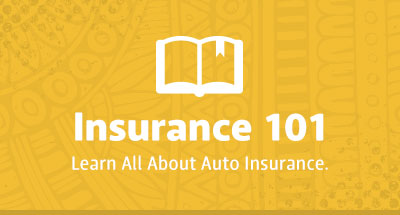What Happens if Your Car is Totaled?
If you’re in an accident and your vehicle sustains considerable damage, your insurance company may declare the vehicle a “total loss.” While each state has its own laws to determine when a car is a total loss, it generally means that the car is more expensive to repair than to replace.
But what happens when your car is “totaled?” Typically, if you have collision or comprehensive coverage and the accident or event is covered by your policy, your insurance company can pay you the actual cash value of the vehicle.
Below, we’ll explain in detail what a “total loss” means in Illinois and steps you can follow if your car is “totaled.”
If you’re looking for budget-friendly insurance coverage that includes collision and comprehensive coverage, Illinois Vehicle Insurance Agency, LLC (Illinois Vehicle) can help. Illinois Vehicle works with multiple insurance carriers to help drivers find options that fit their needs.
What is "total loss" in car insurance in Illinois?
Each state has different laws and requirements for determining when a car is a total loss. In some states, if the estimated cost of repairs exceeds a certain percentage of the vehicle’s actual cash value, the car is considered a total loss.
In Illinois, insurance companies use a formula called the Total Loss Formula to determine whether a vehicle is a total loss. According to this formula, if the cost of repairs plus the salvage value equals or exceeds the vehicle’s actual cash value (ACV), the car is declared a total loss.
This may sound complicated, so let’s delve into each part of this formula:
- Cost of repairs: As the name suggests, this is simply the estimated cost to fix the vehicle after the accident.
- Salvage value: This is the estimated resale value of the vehicle after the current damages.
- Actual cash value (ACV): This is how much your car was worth right before the accident or damages. It includes depreciation. Insurance companies often use tools such as Kelly Blue Book to find a vehicle’s current ACV.
Practical example:
Let’s say the pre-crash ACV of your sedan is $15,000. After an accident, the repair estimate is $7,000 and the salvage value is $9,000. Adding $7000 plus $9,000, we get $16,000. This amount is higher than the ACV. Therefore, your car would be declared a “total loss” in Illinois.
What to do if your car is “totaled”
If you believe your car may be “totaled,” here are some steps you can take:
1. Contact your car insurance company
To begin the claims process, contact your insurer and file a claim. Have any relevant documents and information ready, including any police reports that were filed after the accident. The insurance company will inspect the damage and determine if your vehicle is a total loss. Keep track of dates and communications with your insurer.
The Illinois Department of Insurance also recommends protecting your vehicle from further damage since some repairs may be denied. Review your policy in detail to determine if you need to fulfill any other requirements.
2. Review your insurance coverage
Depending on what coverages you have in your policy, you may receive a payout based on your vehicle’s actual cash value (the price right before the accident), minus your deductible.
Typically, collision coverage covers traffic accidents such as crashes. On the other hand, comprehensive coverage covers events such as vandalism, theft, extreme weather damage, or falling objects.
3. Remove your personal belongings
Before your vehicle goes to a salvage yard or auction, remove any important items and documents. You should also remove the license plates, as you may have to return them to the DMV or transfer them to your next vehicle.
4. Handle the title transfer (with Illinois exceptions)
You’ll then transfer the vehicle to your insurance company, including its title. After the insurance company makes a payment for the damages, the vehicle gets a salvage title, and ownership passes to the company.
In Illinois, an owner may keep the vehicle without a salvage title if the car sustained hail damage only and is safe to drive. This also applies if the car’s model is 9 years or older, and the owner and insurance company agree to the individual owner keeping it. This is according to the Illinois Vehicle Code.
5. Explore vehicle replacement options
If you have rental reimbursement coverage in your policy, you may be able to use a rental vehicle while the “total loss” process takes place. Some insurance companies offer public transport or rideshare reimbursement options, so check your policy to see which benefits apply to you.
6. What if you still owe money on the car?
If your vehicle was financed and declared a total loss, your insurance company will typically pay the lender the actual cash value (ACV) of the vehicle. Usually, if you owed less than the ACV, you get the remainder. Otherwise, you are liable for any remaining car payments to the lender.
If you purchased Gap coverage and still owe money on the vehicle, it can help you pay for the remaining amount when a car is declared a total loss after a covered accident.
Looking for affordable auto insurance? Get a free quote today
Illinois Vehicle serves drivers across the Chicagoland area. We work with multiple insurance companies, so you can compare quotes and choose an option that fits your budget.
Our Spanish-bilingual agents are ready to support you at one of our locations or via phone. Call Illinois Vehicle now at 630-581-4805 or get a free car insurance quote online!
Disclaimer:
This material is for general informational purposes only. The products, services, and discounts referenced herein are not available in all states or from all companies. All statements are subject to the terms, exclusions, and conditions of the applicable policy. In all cases, the actual language of the policy contract prevails. Coverage is subject to individual policyholders meeting the insurer's underwriting qualifications and state availability. Other terms, conditions, and exclusions may apply.






